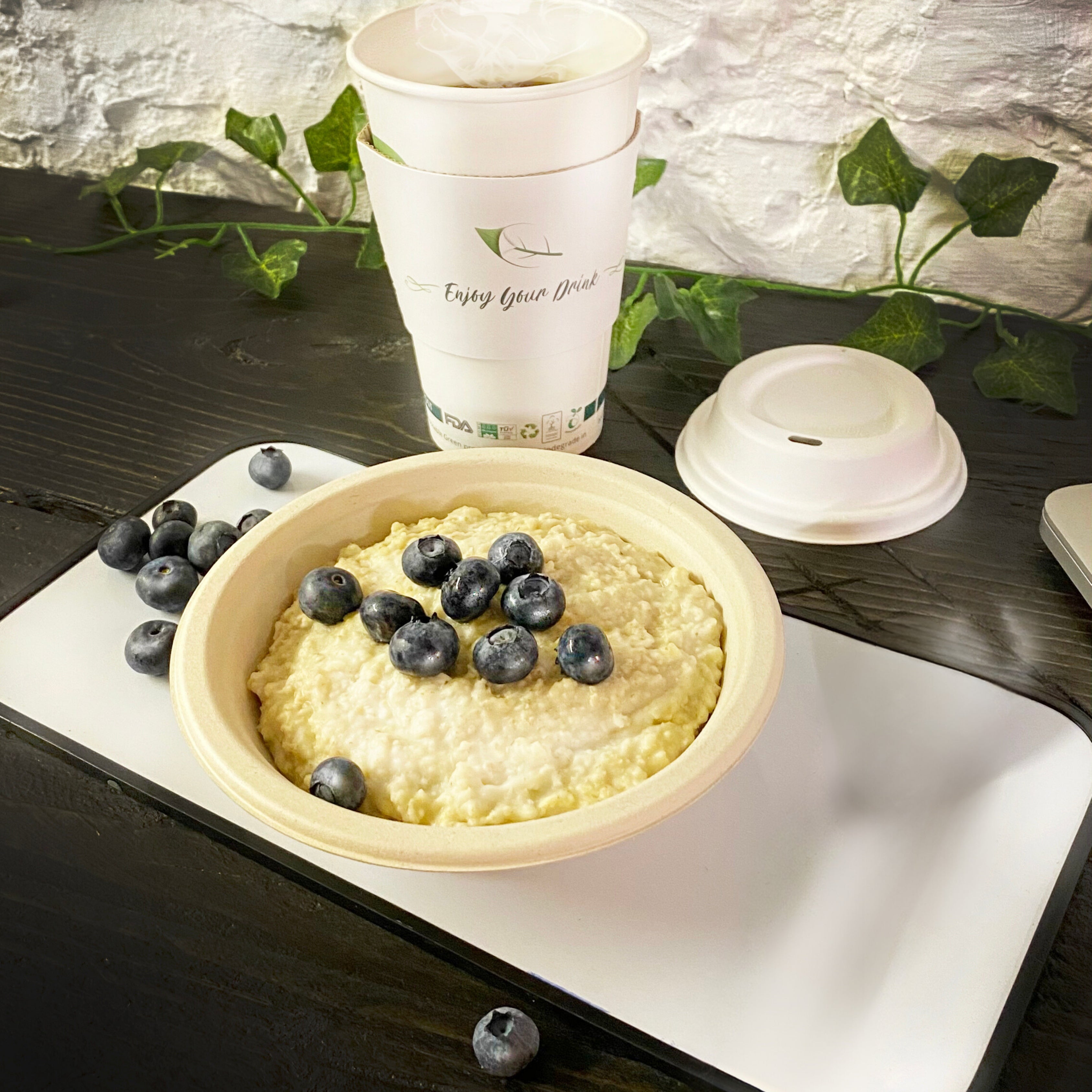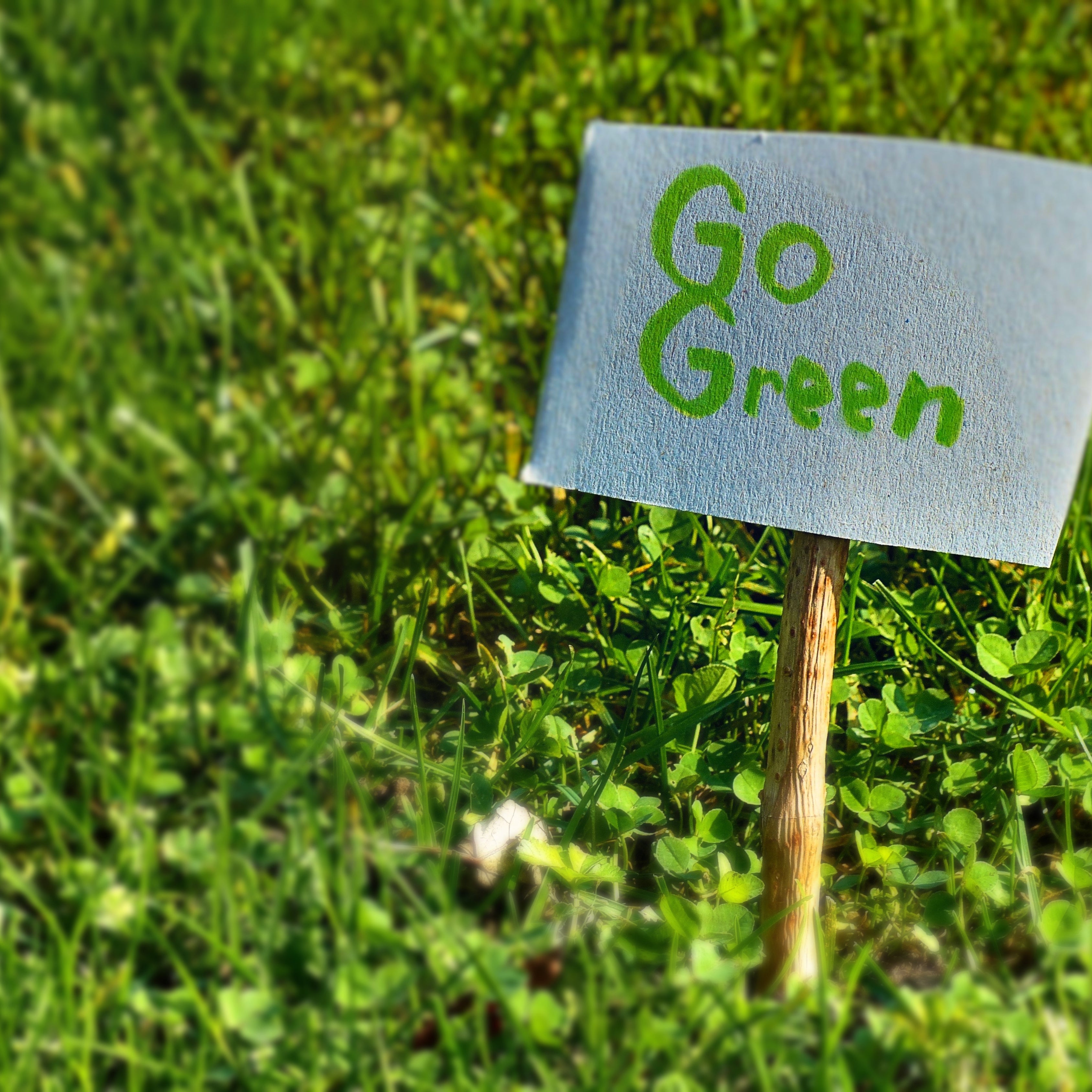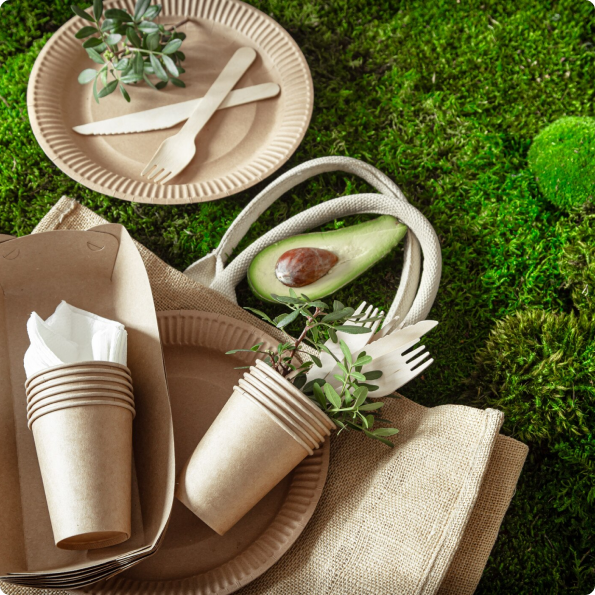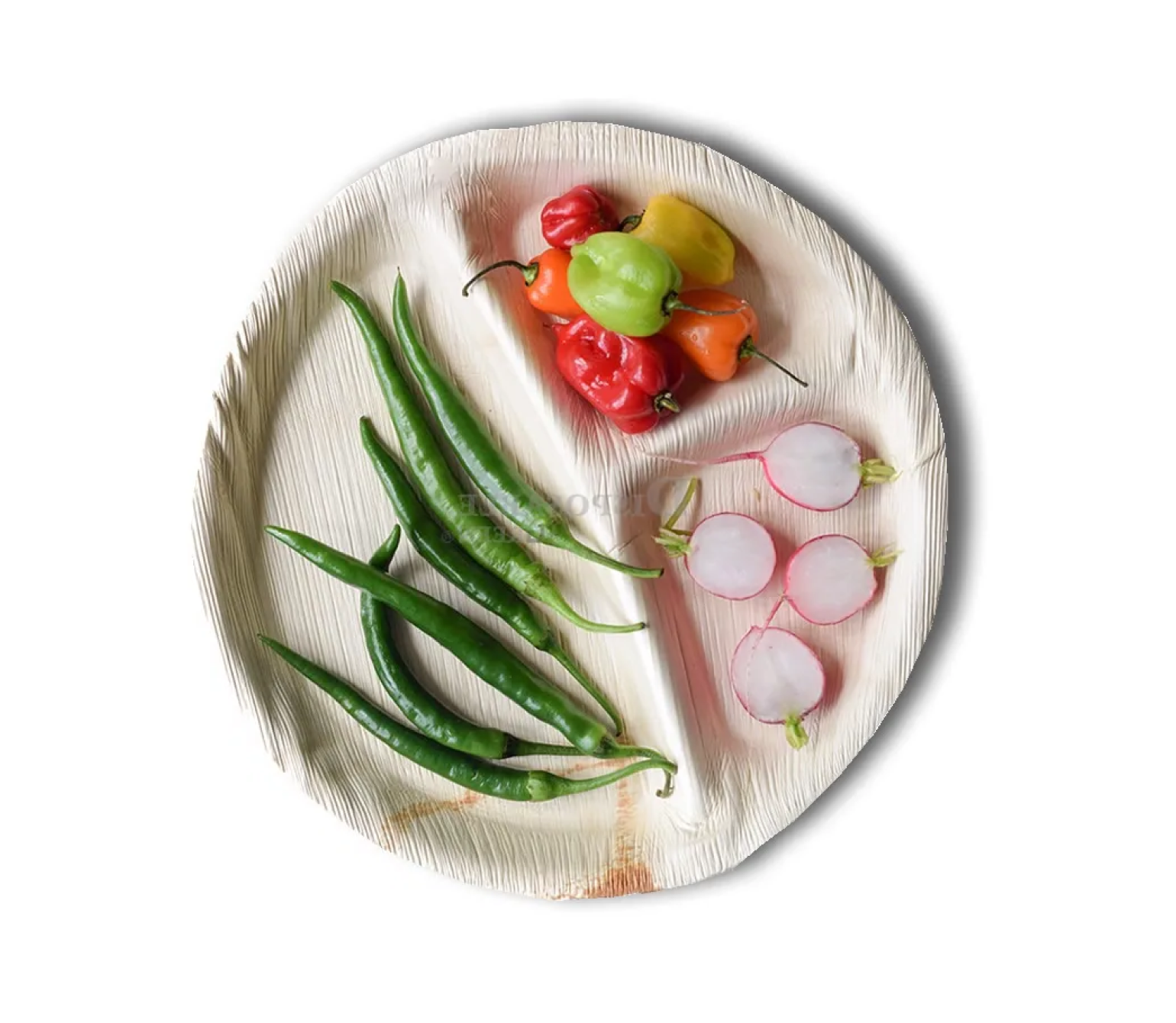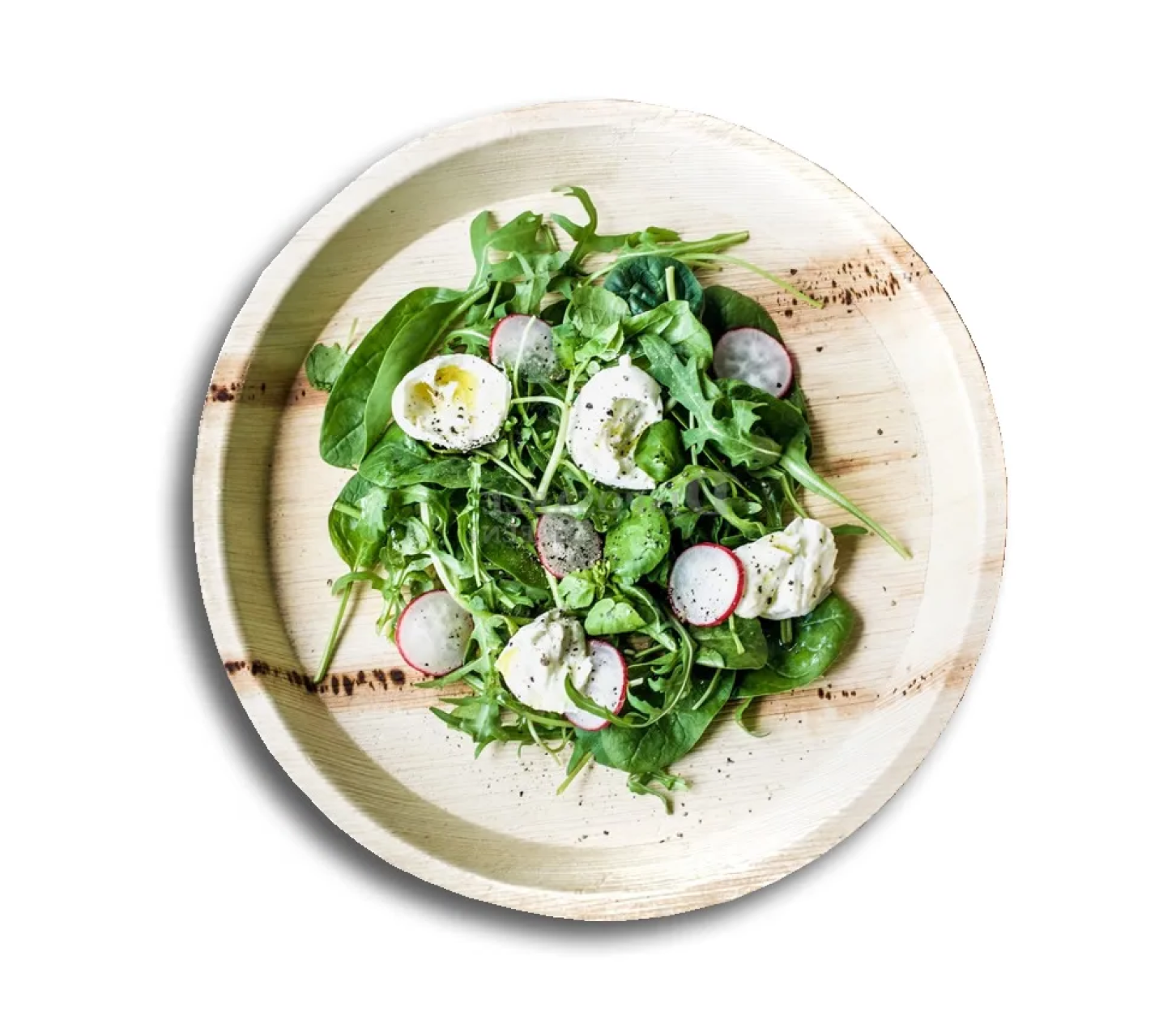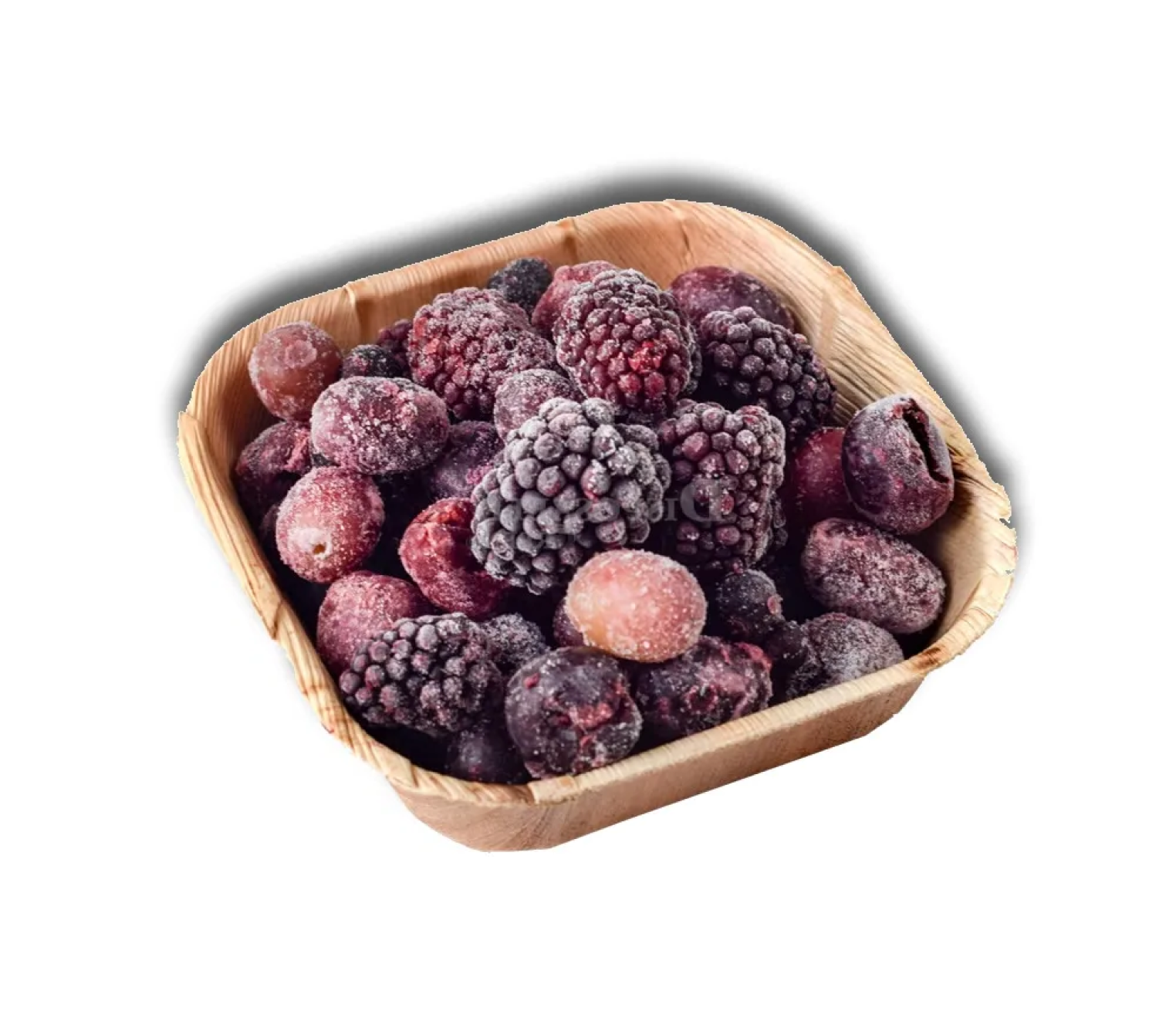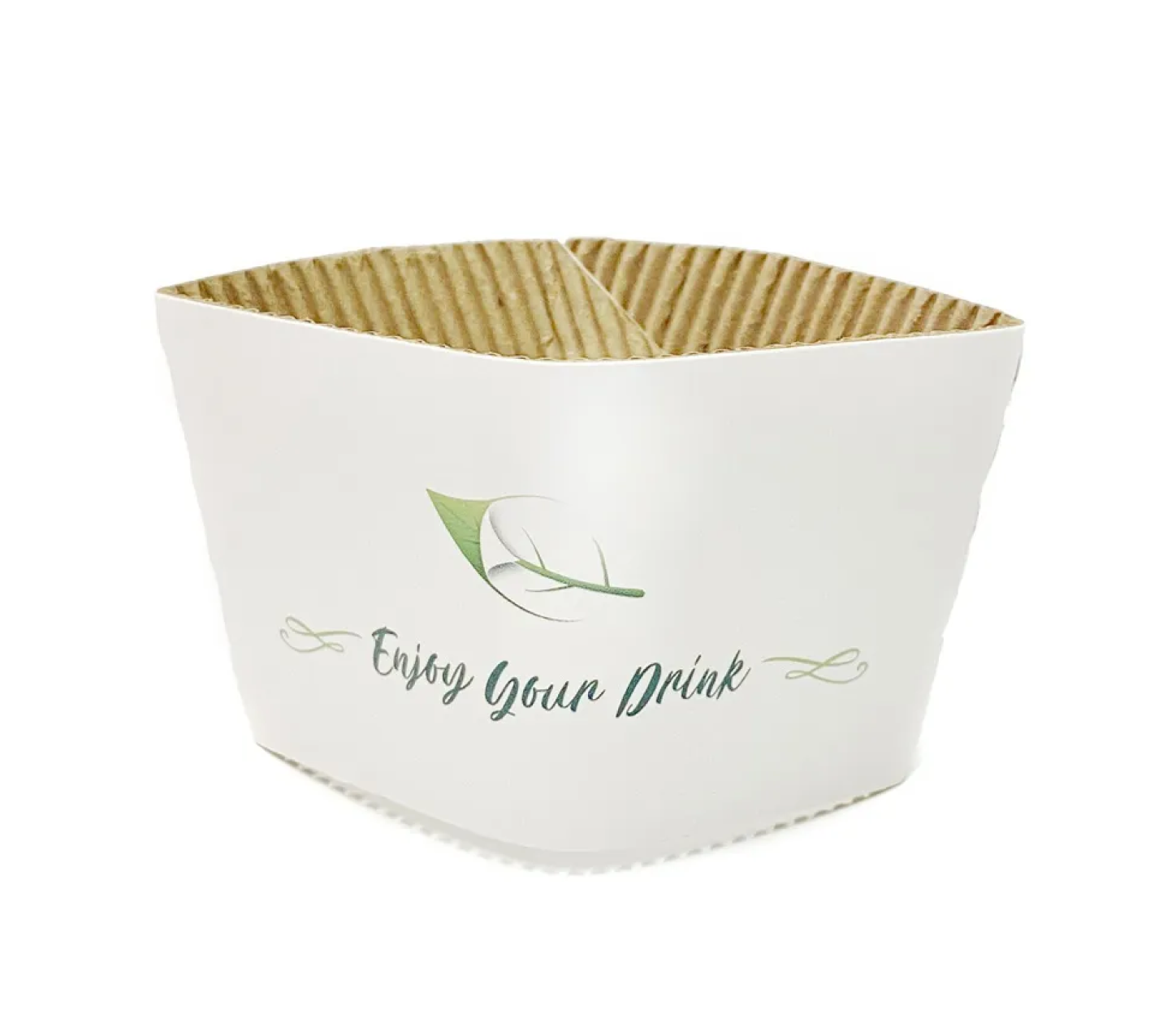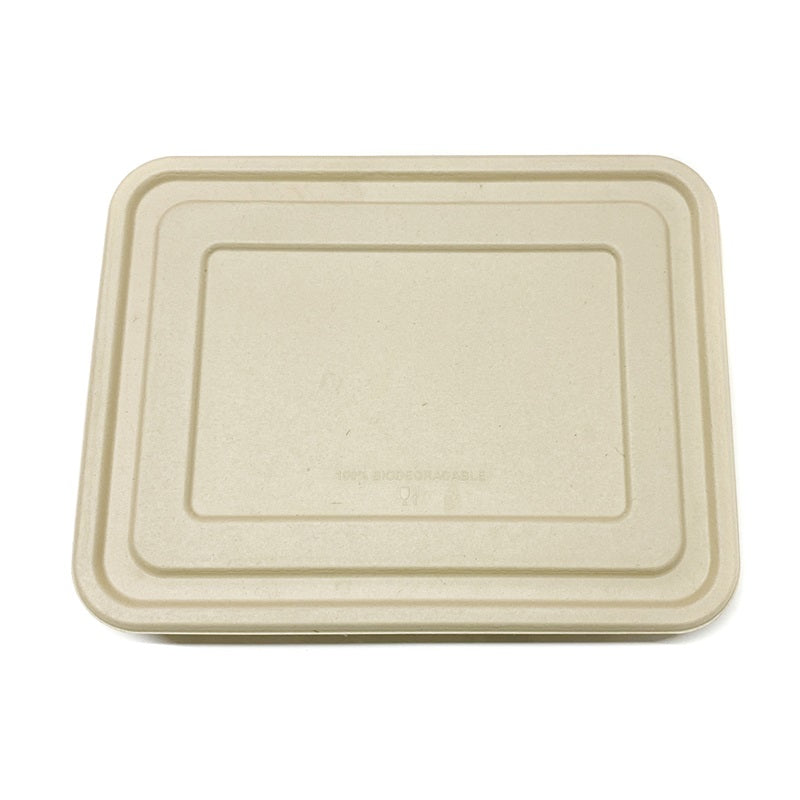
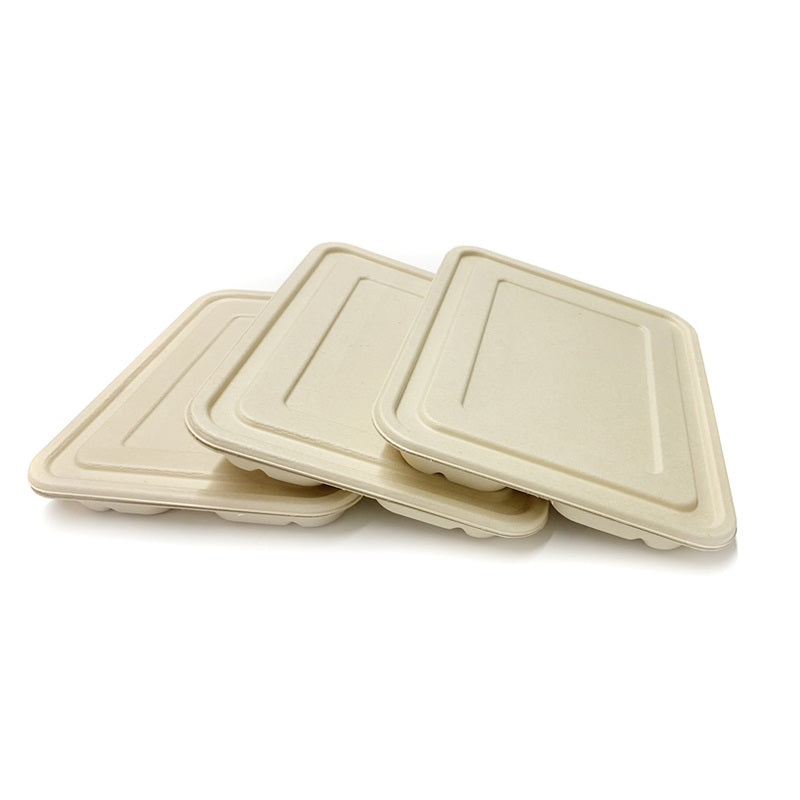
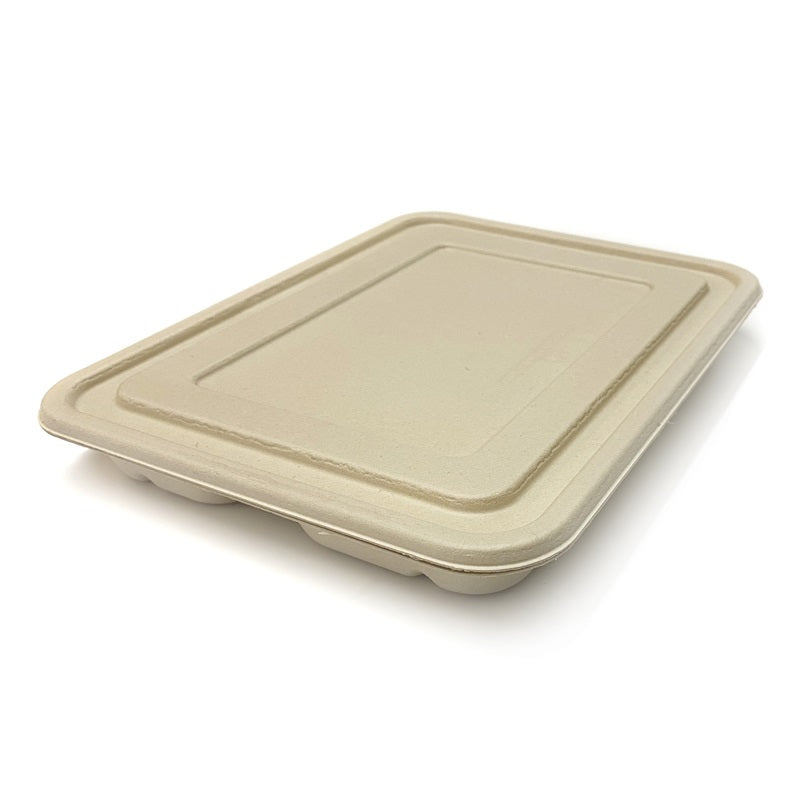
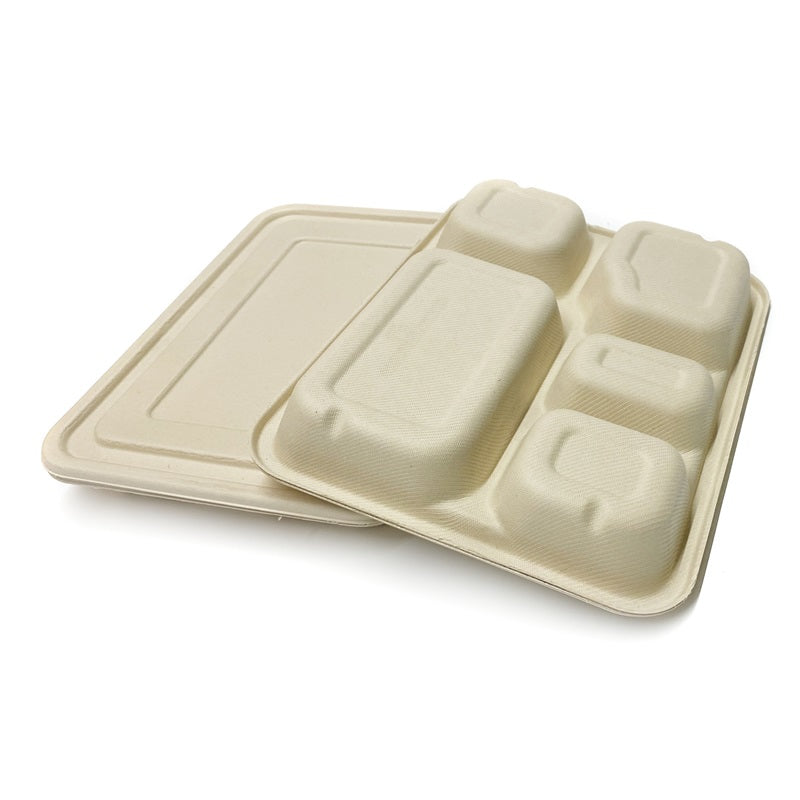
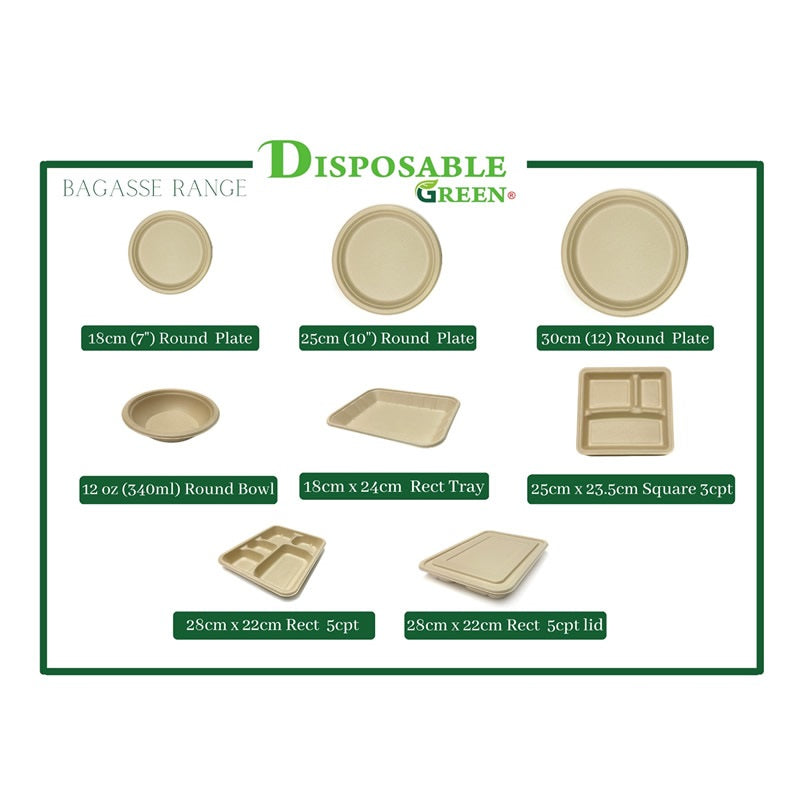
Rectangle Plate Lid 5 CPT 28cm x 22cm
excl. VAT
Product Information
Product Code- BAG007
If you’re looking for a sustainable, sturdy tableware that won’t absorb oil or leak, this biodegradable bagasse plate is the perfect solution.
Made from sugarcane, bagasse is an eco-friendly alternative to plastic and polystyrene. Tree-free and plastic-free!
Our bagasse range includes a variety of plates, trays and bowls in different shapes and sizes. The products are stronger than standard paper products, and are suitable for hot, wet, cold, or even oily foods. So, no matter what you’re serving, we have a sustainable solution for you.
This biodegradable bagasse lid goes with Disposable Green® 28cm x 22cm Rectangle 5 Compartment Plate to make a perfect, eco-friendly hot food box. So you can serve street food in sustainable style and with confidence that your customers won’t spill their food. Made from 100% sugarcane fibre, it’s stronger than paper and more sustainable than polystyrene. Lids be honest, this eco-conscious alternative is so much better than plastic!
All our products are designed for the circular economy, they can be composted at home or at a landfill. From nature, back to nature—a truly sustainable solution.
Sample-Rectangle Plate Lid 5 CPT 28cm x 22cm
Product Features:
100% Natural and Unbleached
Leakproof
Microwave safe and Ovenproof up to 220°C for 20 mins and Refrigerator and Freezer safe
Extra Strong, Sturdy and Versatile
Can be used for both hot, cold, wet and oily foods
Home Compostable
Industrially Compostable
Plastic-free and tree-free
Shipping
Free Next day* shipping over £30 (Excl. VAT)
Order Cut-Off Time: Weekday - 4.00 PM | Saturday - 11.00 AM

Environmental benefits of bagasse
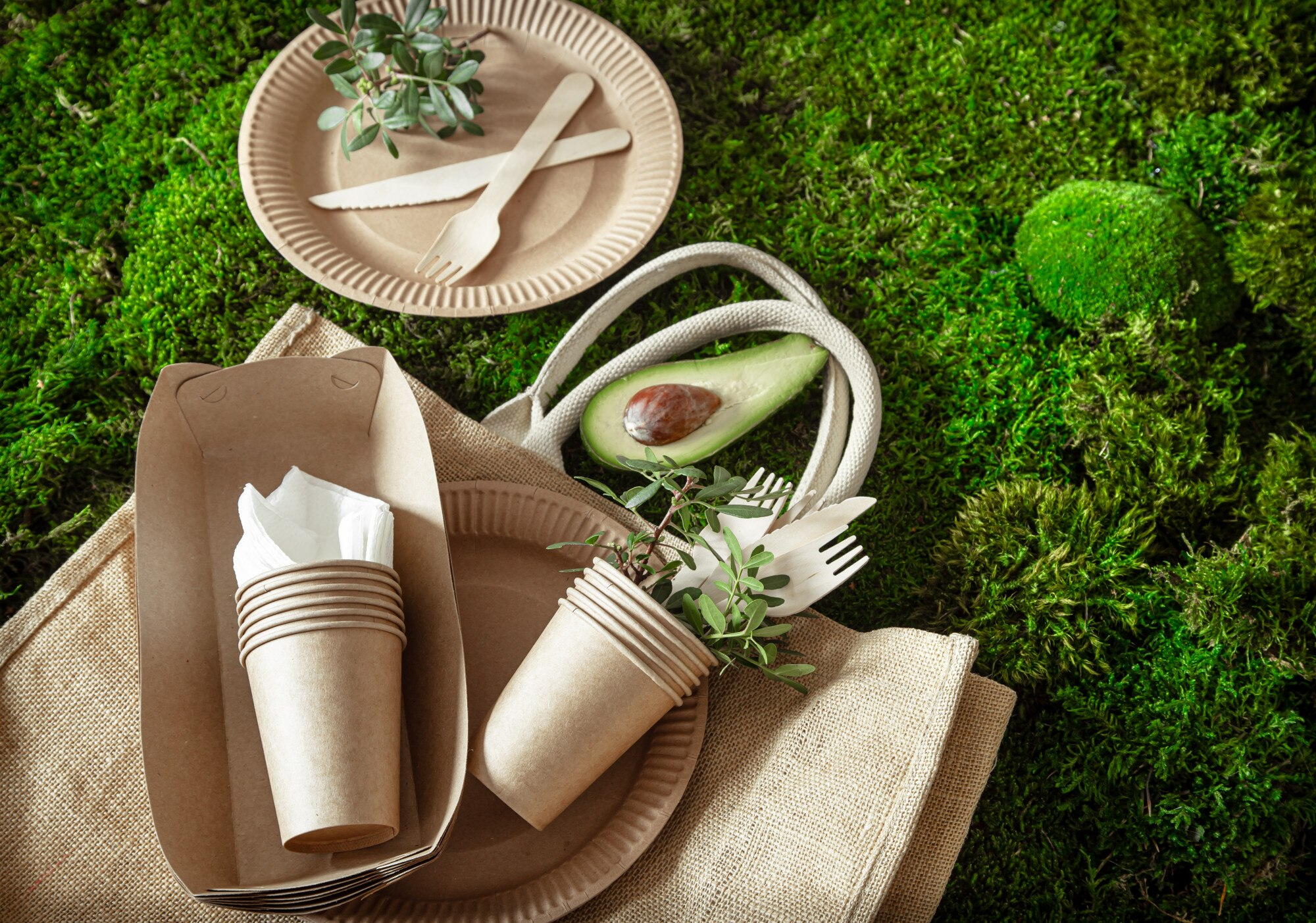
20,000,000 trees are cut down every year to manufacture paper cups—most of those cups are coated in polyethene—which takes 20+ years to decompose in landfills. Bagasse provides a sustainable alternative to these tree-based paper products.

Renewable: bagasse is a by-product of food production—instead of going to waste it is repurposed, so this material is considered an extremely renewable resource.

Compostable: In as little as 60 days, bagasse can be composted entirely—leaving behind no toxic residue. When composted, bagasse turns into a nutrient-rich fertilizer of nitrogen, potassium, phosphorus, and calcium.

